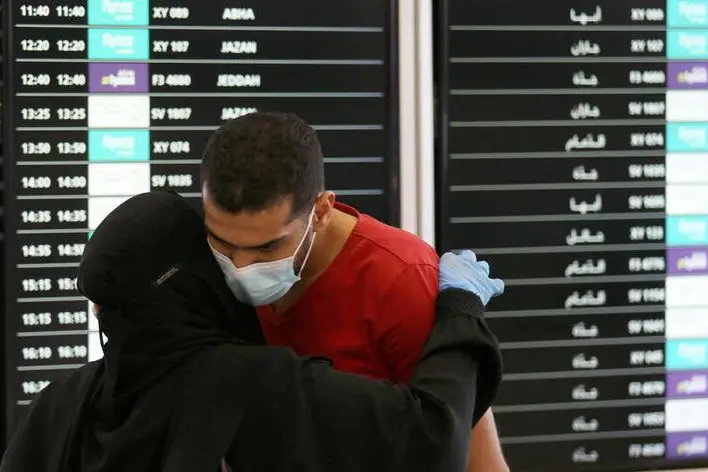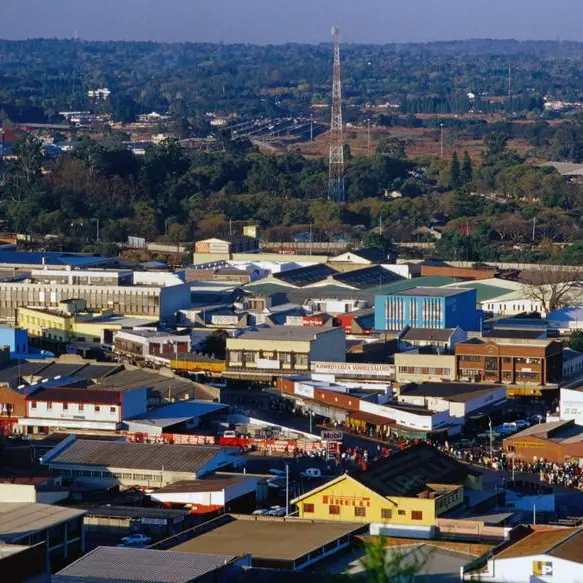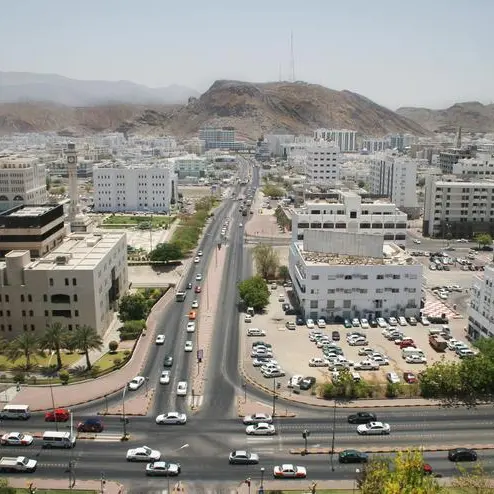PHOTO
RIYADH: As governments across the globe took various measures to contain the spread of the coronavirus disease (COVID-19) pandemic, many expatriate families have been left agonized by separation from relatives across the world.
Expats stranded outside Saudi Arabia due to COVID-19 will only be allowed to return to the Kingdom after the health crisis is over, government officials have revealed.
Navaz Abdul Rasheed, from Kerala, India, who works in Saudi Arabia as a technical delivery manager at Reuters subsidiary Refinitiv, was separated from his family for several months.
“When I was watching the COVID-19 outbreak in China, I never thought the same situation may happen in Saudi Arabia or in India,” Rasheed, a former chairman of the India International Public School in Riyadh (IIPS), told Arab News.
“It was shocking for me, because I had planned a holiday with my family in the same week when the lockdown was announced, from March 15 onwards for two weeks, to take care of our daughter’s planned dental surgery. I wasn’t sure if traveling was a wise decision in that situation, so I decided to let my family travel, especially when the schools were suddenly closed.”
His company decided all staff would work from home immediately after the outbreak, he added. “I kept myself busy with helping our clients in the financial sector to continue their business without much impact.”
The situation forced Rasheed to start cooking food with the help of recipes from YouTube, while groceries were mostly bought online to minimize errands.
However, staying alone locked down in a villa for weeks left Rasheed depressed. “Once I even thought of flying to India through repatriation flights arranged by the Indian Embassy, as my company has agreed to work from India, with a condition of returning within few months.”
FASTFACT
Expats stranded outside KSA due to COVID-19 will only be allowed to return to the Kingdom after the health crisis is over.
This was the first time he had spent longer than three weeks without his wife and children in 20 years.
“My family was in quarantine for 28 days in India and my daughter’s surgery was postponed due to lockdown in Kerala. The children struggled initially to attend online classes with internet bandwidth issues. My daughters are worried, especially the worry is at paramount for my second daughter Asiya who is completing her 10th grade this year at the IIPS,” he added.
All these challenges and worries compounded Rasheed’s mental stress. The news of COVID-19 cases and deaths added to the pressure his family was already experiencing.
“It wasn’t easy for me to convince my family that I am doing well and there is nothing to worry (about),” said Rasheed.
He decided to minimize watching COVID-19 news, and started spending more time in work, taking online courses and engaging in voluntary educational activities.
Rasheed is hoping for a COVID-19 vaccine to be found and successfully tested on humans.
Hareez Mohamed, a Sri Lankan expat working in the Kingdom at Adma Shamran Company, has suffered similar issues. “My daughter has completed her final year of university in Malaysia and is disheartened because she is unable to come back home due to the travel restrictions,” Mohamed said.
Another Sri Lankan expat, Chandana Kulathunga, who works as a sports coordinator at the Sri Lankan International School in Riyadh, said his daughter was now stranded in Canada. “My daughter wants to be with us as she is concerned about her safety during the COVID-19 pandemic,” he told Arab News.
The two families, with children in two different continents, share the same worries of the inherent uncertainty for their children’s well-being.
They added that they barely sleep during the day and subsequently stay awake to compensate for the varied time zones to connect with their children online.
“Across the fabric of time and space, the only element that knits us together and keeps us going is hope, the hope that soon, one day, we can hug our children in our safe arms again,” said Kulathunga.
Copyright: Arab News © 2020 All rights reserved. Provided by SyndiGate Media Inc. (Syndigate.info).





















